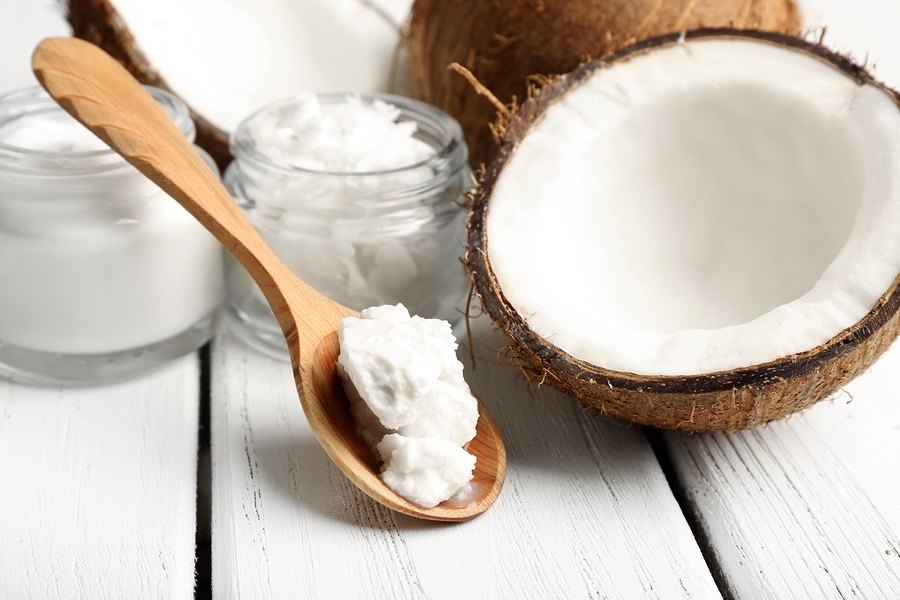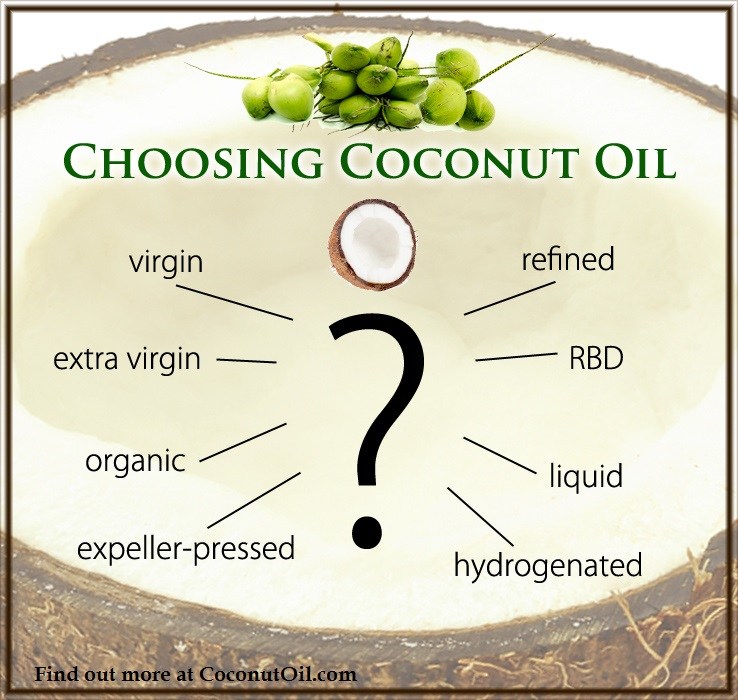by Paul Fassa
Health Impact News
A recent 2017 study has determined that pure dietary saturated fats, especially coconut oil, can ease the suffering from inflammatory bowel diseases such as Crohn’s disease.
This study was conducted at Case Western Reserve University in Cleveland, Ohio, a private institution well known for independent research. The study was reported in Science Daily June 22, 2017. Mice were fed only plant based fats such as cocoa butter and coconut oil.
The mice fed coconut oil or cocoa butter had fewer kinds of gut bacteria. Their gut microbiome content had been positively altered to a healthier balance by 30 percent.
Microbiome changes were noticed in the mice feces and/or the cecum, a part of the small intestine that Crohn’s inflammation can spread into outside the colon or large intestine.
These helpful changes were observed even with low doses of coconut oil or cocoa butter, indicating that a moderate dietary change toward increased consumption of these fats would benefit Crohn’s sufferers. It wouldn’t be necessary to switch to a ketogenic diet completely. But at least a temporary ketogenic diet could bring about more change more rapidly.
According to the first study author, Alexander Rodriguez-Placios, Ph.D., and Assistant Professor of Medicine at Case Western Reserve:
“The finding is remarkable because it means that a Crohn’s patient could also have a beneficial effect on their gut bacteria and inflammation by only switching the type of fat in their diet. Patients would only need to replace a ‘bad’ fat with a ‘good’ fat, and eat normal amounts.”
Professor Rodriquez-Placios did caution:
“Not all ‘good’ fats might be good in all patients. Mice indicate that each person could respond differently. Ultimately, we aim to identify the ‘good’ fat-loving microbes for testing as probiotics.” (Study source)
Another more cynical perspective would be that perhaps Big Pharma might be interested in their study and other similar studies to eventually pursue creating a synthetic formula based on their discovered biochemical activities.
Often these pharmaceutical inventions are devoid of other natural balancing compounds, making them less effective and more dangerous.
Previous Studies on Crohn’s Disease Show Potentially Contagious Microbes
Other studies have led to this one. For example, a 2015 German study:
“Novel mechanism for Crohn’s disease uncovered,” “… determined that in mice, bacterial imbalance in the gut can lead to an inflammation similar to Crohn’s disease, and this can be transmitted to other animals.”
The transmission aspect of Crohn’s is new and concerning. (Study source)
Even earlier in 2014, 28 gastroenterology centers across North America worked together to uncover how microbes contribute to Crohn’s disease. The study’s title as published by the journal Cell Host & Microbe is:
“Large study identifies exact gut bacteria involved in Crohn’s disease.” This study “… identified specific organisms that are abnormally increased or decreased in disease, which forms a blueprint to develop microbial therapeutics,” proclaimed study coordinator Dr. Ramnik Xavier of Massachusetts General Hospital and the Broad Institute of MIT and Harvard. (Study source)
So this line of research has existed in various locations over the past few years. Crohn’s sufferers and those with other inflammatory gut ailments do not need to wait for research results in order to benefit from currently known information.
Coconut oil has many therapeutic attributes and is absolutely safe. Even with the covertly opportunistic and elusive manifestation of health destroying candida albican overgrowth, three and a-half tablespoons of virgin coconut oil taken daily has proven therapeutic. (Source)
The following video is a fascinating, lengthy explanation of all the factors involving how inflammatory bowel diseases occur by the witty and entertaining Dr. John Bergman. Toward the end, around the 34 minute mark, he gets into the beneficial use of healthy fats, both plant and animal.
Search for Natural Solutions to Crohn’s Instead of Ineffective Pharmaceutical Products with Serious Side Effects
The purpose of this recent study by Case Western Reserve University was based on the premise that more and more Crohn’s and gut inflamed patients were trying to turn away from mainstream medical approaches that involved surgeries and pharmaceuticals that harmed more often than helped.
Many were looking for dietary solutions while some had found complete remissions from cannabis oil, and a few were even getting relief from smoking cannabis. (Source)
Crohn’s disease is essentially a chronic irritable bowel disease (IBD), similar to ulcerative colitis, not to be confused with irritable bowel syndrome (IBS). IBS is not considered as serious and affliction as Crohn’s disease or ulcerative colitis, which are both forms of IBD.
Apparently Crohn’s seeps deeper into bowel tissue than IBS and can spread through different areas of the intestines. It often demands serious medical interventions, including surgeries to remove parts of the intestines, steroid drug prescriptions, and injections of Humira — the brand name for the drug adalimumab — which comes with a black box warning.
The point is, unless you are residing in a state that allows medical marijuana or cannabis for Crohn’s disease, mainstream medical options are grimly limited. The disease and its treatments combined can lead to early death.
But now there is good dietary news that may help those who don’t live in medical marijuana permitted states, healthy dietary fats are good for calming down the inflammation from Crohn’s disease. Of course, if a Crohn’s sufferer can find his or her way to cannabis oil or other cannabis edibles, consuming healthy fats can potentially increase the effect of reducing painful symptoms associated with Crohn’s.
See Also:
Doctor Finds Coconut Oil Effective Against Helico Pylori Bacteria
Coconut Oil Offers Hope for Antibiotic-Resistant Germs
Virgin Coconut Oil:
How it has changed people’s lives and how it can change yours!
Includes 85 recipes – Free shipping available!







 HHS Secretary Kennedy Breaks His Promise: "War on Saturated Fat" Kept in Tact with New U.S. Dietary Guidelines
HHS Secretary Kennedy Breaks His Promise: "War on Saturated Fat" Kept in Tact with New U.S. Dietary Guidelines Research Continues to Show Virgin Coconut Oil's Effectiveness in Treating Cancer
Research Continues to Show Virgin Coconut Oil's Effectiveness in Treating Cancer Coconut Oil Continues to Benefit Alzheimer's Patients over Drugs as Studies Continue for Neurological Benefits
Coconut Oil Continues to Benefit Alzheimer's Patients over Drugs as Studies Continue for Neurological Benefits How the Simple High-Fat Low-Carb Ketogenic Diet Continues to Change People's Lives
How the Simple High-Fat Low-Carb Ketogenic Diet Continues to Change People's Lives New Studies Continue to Show that Coconut Oil is the Best Oil for Treating Skin Conditions and Maintaining Healthy Skin and Teeth
New Studies Continue to Show that Coconut Oil is the Best Oil for Treating Skin Conditions and Maintaining Healthy Skin and Teeth
One Comment